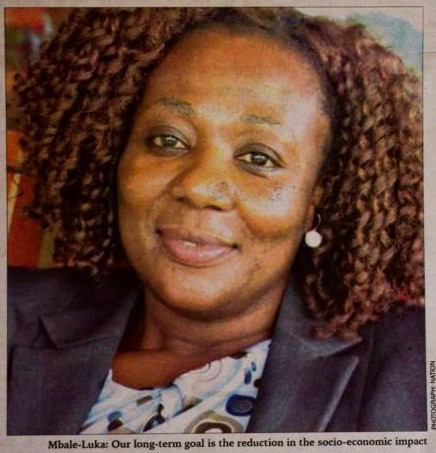
From 6th to 17th November, 2017, Malawi will participate, together with over 196 Governments, at the 23rd Session of the Conference of Parties (COP.23) to the United Nations Framework Convention on Climate Change (UNFCCC) in Bonn, Germany. The conference is held once every year and brings together delegates from government, civil society, private and business sector, industries, scientists and researchers, youth, faith-based communities, and indigenous people. Our environmental correspondent EMMANUEL MUWAMBA engages Tawonga Mbale-Luka, Director of Environmental Affairs and Malawi’s UNFCCC Focal Point on relevance of the COP to Malawi and other related issues.
Q: Briefly explain what UNFCCC is?
In 2016, Malawi faced El Nino induced drought, which spanned across 24 districts in the country and affected a total of 6.7 million people. A food insecurity response plan amounting to $380 million was prepared to provide assistance to the affected population.
From these statistics it is clear that climate change is real and requires immediate and urgent action in order to build the country’s resilience against adverse effects of climate change. Climate change not only affects lives and livelihoods, but also erodes the socio-economic development gains that we have spent so much time and resources investing in.
Q: Malawi does not act now to deal with impacts of climate change, what are the socio-economic costs to the country?
A: Using the result from economic models, if Malawi does not act now, the direct overall costs due to climate change will be equivalent to losing at least 5 percent of the gross domestic product [GDP] each year. On average, $12.5 million or 1 percent of the GDP, and $9 million or 0.7 percent of the GDP is the annual cost of addressing droughts and floods respectively. Taken together, the direct cost of droughts and floods is about 1.7 percent of Malawi’s GDP every year. The consequent food shortages elicit demand for resource reallocation for food security response at the expense of other productive sectors.
Q: So what is Malawi’s vision on Climate Change management because it seems these impacts are here to stay?
A: Malawi’s long-term goal for climate change management is the reduction in the socio-economic impact of adverse effects of climatic change. The medium term outcome is improved community resilience to climate change through the development of sustainable livelihoods and reduced emissions of green house gases.
Q: You will be in Bonn, Germany next month. What are the key agenda items at this conference?
A: The key agenda items to be negotiated at the Conference include matters relating to implementation of the Paris Agreement—mitigation, adaptation, features of Nationally Determined Contributions (NDCs), accounting of climate finance, transparency of action and support. But there are also issues relating to National Communications, vulnerability and adaptation assessments and measures; loss and damage associated with impacts of climate change; technology development, diffusion and transfer and issues related to agriculture; Gender and climate change—empowerment of women, youth and disadvantaged groups. Climate finance will be key as implementation of climate change actions require accessible, predictable and sustainable financial resources.
(INTERVIEW WITH EMMANUEL MUWAMBA, Source: THE MALAWI NATION)
